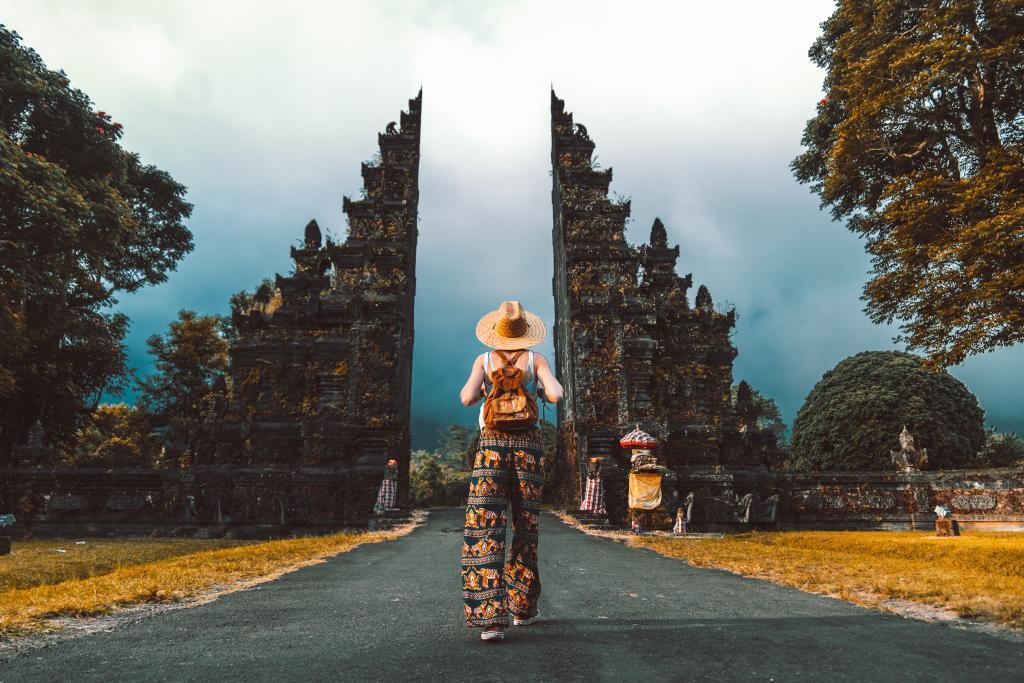Cultural Travel: Tips To Make You More Culture Conscious

1. Get familiar with the destination’s culture before you go!
The major goal of a cultural trip is to experience and preserve the culture of another place. Cultural experiences are a chance to grow and create bonds, but if we are not careful, we can also reinforce negative stereotypes, put ourselves in danger, and insult or hurt the locals.
Cultural research is pretty easy for most places. There are plenty of great resources online, but if you feel like you can’t find what you need, reach out to a local. Ask your Airbnb host what you should know before you travel. Search for a few local influencers online and ask them about major taboos and “do nots.” You are a tourist, the goal is not to be anything else. The goal is to know enough to have genuine conversations and not be insulting with your words or behavior. Here are a few areas that are common cultural divisions that you should research, at least a little.
- The Religious Background: What do they believe? Religion is intensely important to every single people group on earth, even if their religion is “no religion.” So, make sure you know what the majority believes, any major conflicts that are going on between groups, and any major historical events involving faith.
- The History: It pays to know a bit of history on the region. Do they hate the people group next door because they burned and looted their villages 500 years ago… or yesterday? Do they hate them because of race or religion? What is their history with your country? This is important, as it might color their preconceptions of you and vice versa. That old adage that “history is written by the victors,” is true, but you may find in some regions, the history you know is not only wrong, but it’s also offensive. Get a little knowledge before you leave!
- The Attitude Towards Women and Children: Here in the western world, women are generally considered equal and children precious. That is not the sentiment around the world. It is important to note that our perceptions are often tainted by western bias. Remember, that just because it is different doesn’t mean it is wrong.
With that said, many women find it very difficult to travel through some parts of the middle east, especially when you get off the resorts. Many western mothers are concerned about the treatment of children in parts of Africa or Asia. Sometimes, these are true atrocities that we as humans need to work on and fix. Other times, they are just cultural differences that you need to try to adapt to. - The Dress Code: We westerners are fiercely independent about our style, and we don’t like anyone to cramp it! However, when you travel outside your nation, you need to be aware of the perception of the local population. Obviously, all locals won’t be the same. These things vary by generation, individual, and whether you are in a small village or large international city, but bear in mind the majority view. We are not saying you should abase yourself (ladies), but know the local traditions regarding dress and, within reason, try to adhere to them. This is not only to show respect but often for your own safety.
If you have to ask, “Is this ok to wear,” it probably isn’t. The world is changing fast, and it’s common to find half-naked tourists, pretty much everywhere. That doesn’t mean you want to be that person, especially if your aim is to get to know the locals. They won’t believe you are genuinely interested in their culture, and won’t waste their time on you if they feel you are disrespecting them with your dress.
- Gestures: You may find that the hand gesture you thought you were giving, doesn’t mean “peace” at all. It means something very different! Make sure to research hand gestures and eye contact, as these are two common areas that vary greatly across the world.
- Physical Touch: Americans are generally ok with physical touch with a partner, but we aren’t super touchy with friends. In other parts of the world, it would be nothing for two heterosexual men to hold hands or walk arm-in-arm. However, you would not see a man do this with his wife.
American women tend to look men in the eye, smile, and even provide a gentle touch. It is not sexual, and it is not meant to invite anything. It is just seen as friendly. That is not the case in many parts of the world, let’s say Cambodia, women are much more aloof in public, and would not show that kind of “politeness.” Know the norms.
2. Analyze yourself.
Just as it is important to know about the local culture, it is possibly even more important to analyze your own culture and know how the world perceives you. For instance, as Americans, we find that the rest of the world often sees us as wealthy and well-educated, yes…but also selfish, loud, inconsiderate, too proud, and lacking culture. They may also see western women as “a little too friendly.”
Unfortunately, many rural parts of the world only know what they see on TV or Instagram, which is usually a Hollywood movie or an inconsiderate traveler. It isn’t an accurate picture of most of us, and it isn’t fair, but you should be aware of it.
Part of being a culturally aware traveler is not only learning the reality of other cultures but sharing your reality. Just like you had a preconceived perception of who they were, they had one of you too. Cultural travel allows us to change these misconceptions of each other and spread respect and love.
3. Eat the food.
Alright, this one is hard for some people, but it’s important. Every great festival, religious holiday, and personal achievement in the world is celebrated over food. It’s something we all have in common. There is no better way to show someone that you are genuinely interested in their culture than to try their favorite foods.
We aren’t saying you should force yourself to eat things you don’t want for every meal. Just, at some point in your trip, try the local cuisine, especially if you’re offered it by a local! Look for local restaurants instead of chains. Not only is the food better, but you will be helping out a local business owner as well!
4. Prepare for culture shock.
Not every culture trip will put you in a stage of shock, but any good one will! Knowing a bit about culture shock and being ready for it isn’t a bad idea. Typically, there are four stages:
- The Honeymoon Phase: This is when everything about the new culture strikes you as beautiful and mesmerizing! Most people don’t get past this stage on a quick vacation, but you may get to stage II. Don’t leave in this stage, as the goal of culture travel is to really see the place as it is. You want the real thing, the good, the bad, and the in-between.
- The Frustration Phase: This stage is after the hot water quits working, the taxi driver scammed you, and you can’t find a freaking internet signal to save your life! You are easily frustrated, and honestly, you just want to go home. This place sucks, and so do the people. It’s not true, but it’s how you feel. Don’t leave the country in this phase because you will never want to go back, and you will forget the good you saw at first.
- The Adjustment Phase: After a while, you meet a great person. You find a meal you love. The water gets fixed. You learn a few words, and you begin to get out of your foul mood. Hopefully, this happens before you leave!
- The Acceptance Phase: This phase usually doesn’t come on a short trip, unless you have traveled to similar cultures before. In this phase, you come to admire all the gems the culture has to offer, but you recognize and accept the areas that need to be changed. You begin to feel about it the way you do your own culture. It’s not perfect, but we’re working on it.
It’s important to note that you will not go through all these stages on every trip. Seasoned travelers will go through them much faster than novices, and it’s okay if you don’t get to acceptance. Not every place is your place.
5. Open your eyes and take your time.
To fully experience a place, you have to slow down. The nuance of culture is in the little things. If your itinerary has a UNESCO site in every 30-minute slot, you will inevitably miss that elderly man on the street who wants to teach you Backgammon. You will not truly experience Italy or Spain if you don’t chat with a local over an aperativo or tapas. Guided cultural tours of the Amazon are amazing, but take a minute to play soccer with the village kiddos. Don’t just observe, be present. Get in there! Ask to participate. They will love it, and you will leave with a life-changing experience under your belt.
6. Get off the beaten path.
Travel guides are great! Touristy spots are great! You should see those things, but don’t count out a village in the middle of nowhere, with nothing in particular to see. Often, these are the little moments you will remember most. Especially in the older parts of the world, this is where you will find untold gems of culture, the things that you haven’t seen on your Insta feed.
You will meet people who don’t deal with tourists every day, and who are truly interested in your world, and you will find a true cultural exchange. Just as New York City is a totally different beast than upstate, you will find that rural villages in every nation are vastly different than tourist cities. They are often, but not always, more historical and more authentic to the original culture.
7. Learn the language.
Most of the world speaks at least some English. If English is your native language, then you are a pretty lucky traveler. However, just because someone speaks a little English, it isn’t their heart language. They don’t converse with friends and family in it. They use it for tourists. So, if your goal is to get past the day trip tourist level with people, learn to speak a bit of their language.
Unless you are a language savant, you certainly aren’t going to learn to carry on a conversation, but you can learn to say hello! You can learn to say a few congenial phrases. Not only does it help you out, but it also makes people take you a bit more seriously. They will appreciate that you are trying. Language, like food, is a source of pride and importance for people, show them you value it.
8. Book a local guide.
There is nothing wrong with a group tour or using a travel agent. In fact, in some parts of the world, we would recommend only traveling this way. However, if you feel safe and it is allowed, consider asking around for a local guide. If you are doing a homestay, or have made a friend in the area, ask them for recommendations. They may know someone who grew up in the jungle or has been trekking the area since childhood, that does tours for extra money. Not only will you get a much better travel experience, as you will likely be alone or in a small group, but you will also be lining the pockets of someone who needs it.
9. Remember: You are there to learn, not teach.
This is probably one of the best travel tips we can give you for respecting culture. All people are a little ethnocentric. We all tend to think our way of doing things is the best way or the only way. That is, until, we learn better. While you are gifted and certainly have things to offer humanity, remember that you also have things to learn. That’s why we leave the comfort of our homes. That’s why we venture out. We want to learn. We want to grow. Allow yourself to assume the role of a student of the world, and let the great people of earth teach you a thing or two!


